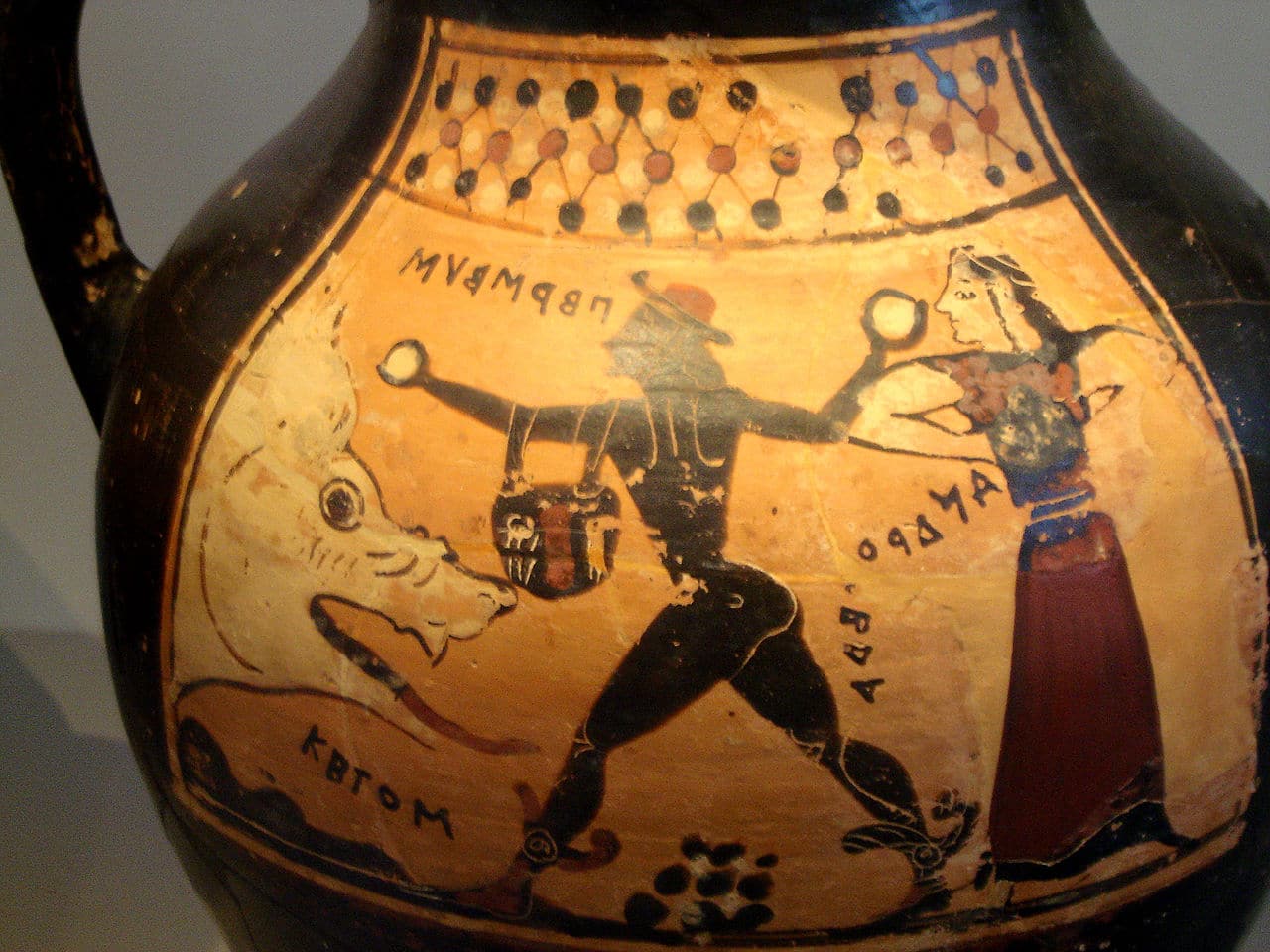

Perseus is well known in Greek mythology as one of the very earliest Greek heroes. According to legend, he was the son of Zeus and fought Medusa and the sea-monster Cetus. What is not so well known is that Perseus was also said to have been the ancestor of the Persians. Given the great distance between Greece and Persia, this is surprising. What exactly does Greek mythology claim about the Persians’ supposed descent from Perseus?
To comprehend the legend of Perseus as the ancestor of the Persians, which goes back to at least the time of Darius I, the king of Persia from 522 to 486 BC, we need to examine a Persian tradition that is a part of numerous ancient records. According to this tradition, the ancestor of the kings of the Achaemenid dynasty was a certain Achaemenes, who was the founder of the dynasty—hence the similarity between the names.
In the Behistun Inscription from the time of Darius I, Achaemenes appears as the father of Teispes. From this and other records, we learn that Teispes was the great-grandfather of Cyrus the Great. Since Cyrus was born around 600 BC, this would mean that Achaemenes was probably a figure of the late-eighth or early-seventh century BC, assuming he in fact existed. There is considerable debate as to whether he indeed did or was, rather, an invention of Darius I.
Persian records do not inform us of Achaemenes’ lineage. However, several Greek sources do provide some enlightenment on this. According to Herodotus, the Greek historian of the fifth century BC, the Persian king Xerxes the Great had the following to say during his famous invasion of Greece:
“Men of Argos, King Xerxes says to you these things: We hold that Perses, from whom we are descended, was the son of Perseus, the son of Danae, and was born of the daughter of Kepheus, Andromeda; and according to this it would seem that we are descended from you.”
According to this, Xerxes himself claimed that the Persians were descended from Perses, the son of Perseus. Given the absence of this claim in any native Persian records, this probably merely means that Xerxes and other educated Persians were familiar with the Greek traditions of their people. It does not mean that the Persians necessarily actually believed in Perses.
In any case, we find this same basic claim in a number of Greek records. Perseus supposedly had a son named Perses, who was deemed to be the ancestor of the Persians.
According to several modern sources, certain Greek records have equated Perses with Achaemenes. For instance, one claim is that First Alcibiades, attributed to Plato in the fourth century BC, conflates these two characters. However, when we examine the actual claims of the source, we see that this is not the case. Through the words of Socrates, this dialogue preserves the following tradition:
“Then let us compare our antecedents with those of the Lacedaemonian and Persian kings; are they inferior to us in descent? Have we not heard that the former are sprung from Heracles, and the latter from Achaemenes, and that the race of Heracles and the race of Achaemenes go back to Perseus, son of Zeus?”
Here, Socrates states that the Persian kings are descended from Achaemenes, who was in turn descended from Perseus. However, he in no way states that Achaemenes was directly the son of Perseus (which would equate him with Perses).
Furthermore, another modern source claims that Achaemenes is referenced as the son of Perseus by a certain commentator in the ancient writings of Dionysius Periegetes (possibly second century AD). Nonetheless, this is also inaccurate.
The commentator on Dionysius Periegetes does clear up the issue of the relationship between Perses and Achaemenes, but the source does not claim they were indeed the same individual. Rather, Richard Edmund Tyrwhitt, a scholar, explains what is actually claimed:
“For Akhaemenes son of Perses, see…the Scholiast (who seems to be quoting Hellanicus) on Dionysius Periegetes line 1053. In this last passage the double assertion is made (apparently by a contemporary of Herodotus) that Perses son of Perseus had a son named Akhaemenes and that he gave name to the united nation of Artoeans…and Kephenians.”
According to this, the actual tradition concerning Perses held him to be Achaemenes’ father. Hence, Achaemenes, the ancestor of the kings of the Persians, was the grandson of Perseus. In other words, Perseus had a son named Perses, who in turn had Achaemenes. This tradition apparently dates back to the fifth century BC, making it almost as old as the very earliest references to Perses and Achaemenes in ancient Greek and Persian records.
Herodotus explains that when Perseus saved Andromeda and married her, they left their son, Perses, in the care of Andromeda’s father, Cepheus, since he did not have an heir. The Persians, who were originally known as the Cephenes after Cepheus, adopted the name Persians after Perses.
Interestingly, Cepheus was supposedly the king of Ethiopia. This is rather distant from the ancient land of Persis, home of the Persians. Presumably, ancient Greek tradition mixed up the Ethiopia in Africa with the Ethiopia near Persis in Asia.
